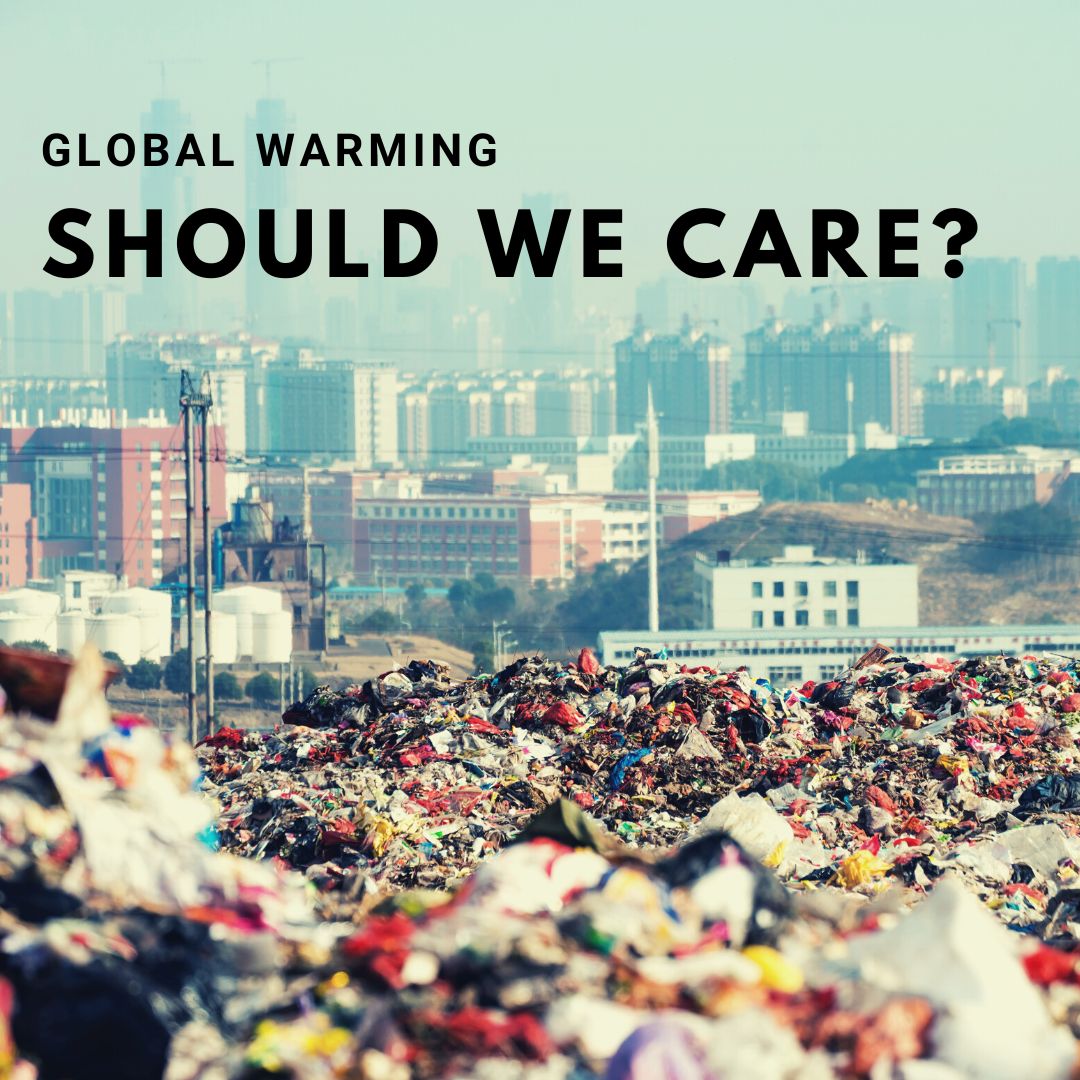
Why Should We Care About Our Planet?
Share
Table of Contents
- Introduction
- Environmental Issues
- Consequences of Neglecting the Environment
- Taking Action: Individual Responsibilities
1. Introduction
Recently, there has been a concerning trend of consistently rising global temperatures, resulting in frequent record-breaking highs. As fellow Earth enthusiasts here at Pawtopia, we share the same worries about the trajectory we're headed towards. That's why it's crucial to understand why we should care about our planet, the challenges posed by the daily increase in temperature, and how we can take action. It's not a responsibility assigned to someone else; it's a collective duty for all of us. Let's delve into why it's vital to act now and make a difference.
2. Environmental Issues
Climate Change
One of the most pressing environmental issues we face today is climate change. The burning of fossil fuels and deforestation contribute to the release of greenhouse gases, leading to a rise in global temperatures. This increase in temperature disrupts weather patterns, causing extreme weather events such as hurricanes, droughts, and heatwaves. The consequences of climate change are far-reaching, affecting not only the environment but also the economy, health, and social well-being.
Deforestation
Deforestation, primarily driven by human activities like agriculture, logging, and urbanization, has a significant impact on our planet. Trees play a crucial role in regulating the climate by absorbing carbon dioxide and releasing oxygen. When forests are cleared, the carbon stored in trees is released back into the atmosphere, contributing to greenhouse gas emissions. Deforestation also leads to habitat loss, jeopardizing the survival of countless plant and animal species.
Pollution
Pollution, in its various forms, poses a severe threat to our planet's health. Air pollution from industrial emissions and vehicle exhaust releases harmful chemicals into the atmosphere, leading to respiratory problems and other health issues. Water pollution from untreated sewage, industrial waste, and agricultural runoff contaminates our water sources, endangering aquatic life and posing risks to human health. Soil pollution affects the fertility of agricultural lands, disrupting food production systems. Especially, microplastics, a form of plastic debris that results from the degradation of larger plastic items, pose a significant concern. These tiny particles can be found in the air, water, and soil, affecting various living organisms, including humans, in numerous ways.
Loss of Biodiversity
The loss of biodiversity, caused primarily by habitat destruction and climate change, has significant ecological implications. Biodiversity is the foundation of healthy ecosystems, providing essential services like pollination, nutrient cycling, and pest control. When species become extinct or populations decline, the delicate balance of ecosystems is disrupted, leading to ecological imbalances and potential collapse of entire ecosystems. Preserving biodiversity is crucial for the long-term stability and resilience of our planet.
3. Consequences of Neglecting the Environment
Adverse Effects on Human Health
Neglecting the environment has dire consequences for human health. Air pollution increases the risk of respiratory diseases, such as asthma and lung cancer. Water pollution can lead to waterborne diseases, such as cholera and dysentery. Exposure to hazardous chemicals and toxins in the environment can have long-term health effects, including developmental disorders and hormonal imbalances. Additionally, climate change can exacerbate existing health issues and increase the spread of infectious diseases.
Economic Implications
The degradation of the environment also carries significant economic implications. Natural disasters resulting from climate change, such as hurricanes and floods, cause massive damage to infrastructure, leading to substantial financial losses. Declining biodiversity can negatively impact industries like agriculture, fisheries, and pharmaceuticals that rely on diverse ecosystems for their products and services. Moreover, the costs of mitigating and adapting to environmental challenges place a burden on governments and economies.
Social and Cultural Impacts
The well-being of societies and cultures is intertwined with the environment. Disruptions caused by environmental issues can lead to displacement of communities, loss of livelihoods, and social unrest. Indigenous cultures that rely on the natural world for their traditions, spirituality, and subsistence are particularly vulnerable to environmental changes. Preserving the environment is not only crucial for the physical health of communities but also for the preservation of cultural heritage and social cohesion.
4. Taking Action: Individual Responsibilities
As individuals, we have a responsibility to care for our planet and take action to mitigate environmental issues. Here are some ways we can make a positive impact:
Sustainable Lifestyle Choices
- Reduce, reuse, and recycle: Minimize waste and opt for products with minimal packaging.
- Conserve energy: Use energy-efficient appliances, switch to renewable energy sources, and turn off lights and devices when not in use.
- Water conservation: Install water-saving fixtures, fix leaks promptly, and practice mindful water usage.
- Sustainable transportation: Choose walking, biking, or public transportation whenever possible, and consider carpooling or using electric vehicles.
- Responsible consumption: Support companies that prioritize sustainability and ethical practices, and choose products with eco-friendly certifications. To be relevant to the readers of this post, Pawtopia bags are 100% compostable and certified by international organizations including Tuv Austria. We will discuss more about our efforts in details below.
Minimizing Carbon Emissions
- Energy-efficient homes: Improve insulation, use smart thermostats, and invest in renewable energy systems like solar panels.
- Carbon offsetting: Compensate for your carbon footprint by supporting projects that reduce emissions or remove carbon from the atmosphere.
- Sustainable travel: Opt for eco-friendly modes of transportation, offset your travel emissions, or explore local destinations.
- Plant trees: Participate in reforestation efforts or create a personal green space by planting trees and vegetation.
How can Pawtopia help you to preserve our planet?
At Pawtopia, our dedication to protecting the Earth is unwavering. That's why we prioritize eco-friendliness in every aspect of our business, from carefully selecting our product line to our packaging materials.
We intentionally choose eco-friendly products to minimize your pet's environmental impact. For example, our Pawtopia home compostable poop bags are specially designed to naturally degrade, reducing the release of harmful substances into the environment. By opting for these eco-friendly options, you can be a responsible pet owner and contribute to a healthier planet.
Furthermore, we are committed to minimizing waste in our business operations. From our shipping tape and thank you cards made from kraft paper to kraft packing paper and compostable packaging bags, we ensure that our business materials are either recycled, recyclable, or compostable. Most importantly, we completely avoid the use of any form of plastic in our business practices.
What more can you do?
Are your family, friends and fellow-pet owners also conscious about the environment? Encourage them to reflect on their lifestyle choices and consider ways they can contribute to preserving our planet if not. Together, we can make a difference.
Conclusion
Caring for our planet is not a choice but a necessity. The environmental issues we face today have profound implications for our health, economies, and future generations. By understanding the importance of environmental stewardship and taking individual and collective actions, we can make a positive impact. By making sustainable lifestyle choices, being mindful of our shopping decisions, and inspiring our family and friends to embrace an earth-loving lifestyle, every action we take matters. Together, we can make a positive impact on our planet. Let's remember that it's not someone else's job but ours. The time to act is now.
FAQs
-
Why is it important to care about our planet? Caring for our planet is essential because it sustains life as we know it. We rely on Earth's resources for survival, and neglecting the environment can lead to severe consequences for human health, economies, and ecosystems.
-
What is the daily increase in average temperature and why is it concerning? The daily increase in average temperature refers to the rise in global temperatures caused by human activities, primarily the release of greenhouse gases. This increase disrupts weather patterns, leading to extreme weather events, rising sea levels, and other climate-related challenges.
-
How does neglecting the environment impact us eventually? Neglecting the environment can have far-reaching consequences. It can lead to adverse effects on human health, economic losses, social and cultural disruptions, and the loss of biodiversity. It also compromises the ability of future generations to thrive on a healthy and sustainable planet.
-
What can individuals do to minimize their environmental impact? Individuals can make a difference by adopting sustainable lifestyle choices such as reducing waste, conserving energy and water, choosing eco-friendly products, and minimizing carbon emissions through actions like sustainable transportation and using compostable poop bags for pets.

